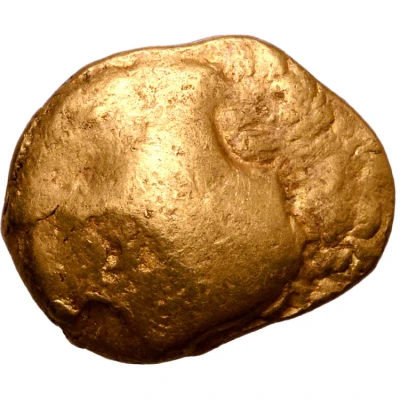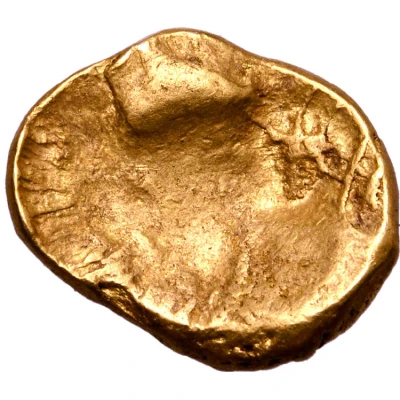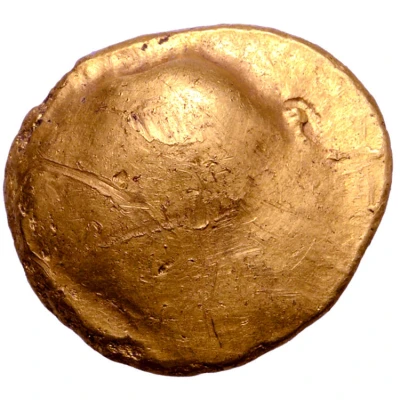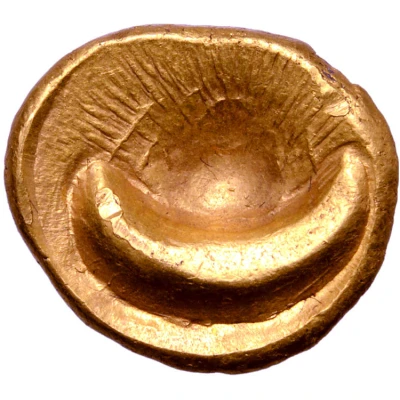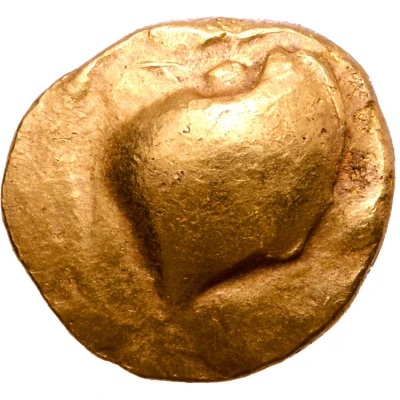
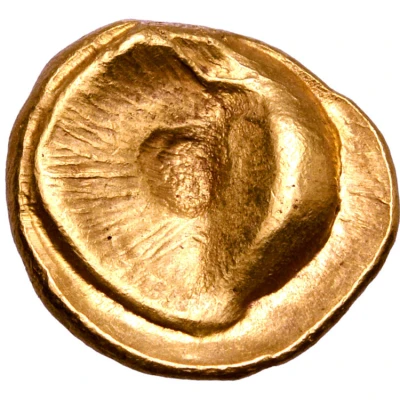

© Roma Numismatics Limited
Stater Muschel Type Precursor 200 BC - 1 BC
| Gold | 7.28 g | 16 mm |
| Issuer | Boii |
|---|---|
| Type | Standard circulation coin |
| Years | 200 BC - 1 BC |
| Value | 1 Stater (20) |
| Currency | Drachm |
| Composition | Gold |
| Weight | 7.28 g |
| Diameter | 16 mm |
| Shape | Round (irregular) |
| Technique | Hammered |
| Demonetized | Yes |
| Updated | 2024-10-09 |
| Numista | N#189342 |
|---|---|
| Rarity index | 100% |
Reverse
Wide, flat ring, with striations, sloping inwards to a central recess; bulge below.
Comment
Paulsen pl. 14, 307Examples of this type:
• Example #1 (7.28g, 16mm, Near Mint State) - In main image:
© Image courtesy of Roma Numismatics Limited
◦ Ex-Hermann Lanz Collection; published in Kostial #50;
◦ Exhibited by the Staatlichen Münzsammlung München at the 1997 International Numismatic Congress in Berlin; at the Berliner Bank also in 1997; also exhibited at the Luitpoldblock Palmengarten, Munich in 2003 (exhibition #20[reverse]).
◦ Auctioned by Roma Numismatics Ltd, Auction XVIII, 29 Sep 2019, lot 24. Sold for 1,800 GBP.
• Example #2 (7.51g, 16mm, Extremely Fine) - In main image:
© Image courtesy of Roma Numismatics Limited
◦ Ex-Hermann Lanz Collection; published in Kostial #49;
◦ Exhibited by the Staatlichen Münzsammlung München at the 1997 International Numismatic Congress in Berlin; at the Berliner Bank also in 1997; also exhibited at the Luitpoldblock Palmengarten, Munich in 2003 (exhibition #20[obverse]).
◦ Auctioned by Roma Numismatics Ltd, Auction XVII, 28 March 2019, lot 24. Sold for 3,200 GBP.
Interesting fact
One interesting fact about this coin is that it features a unique blend of Celtic and Greek influences in its design. The coin's obverse side features a stylized head of a boar, which was a symbol of strength and fertility in Celtic culture, while the reverse side bears a depiction of a Greek goddess, likely Artemis or Aphrodite, highlighting the cultural exchange and blending that occurred during this time period. This coin serves as a fascinating example of how different cultures can come together and influence one another's art, religion, and currency.
